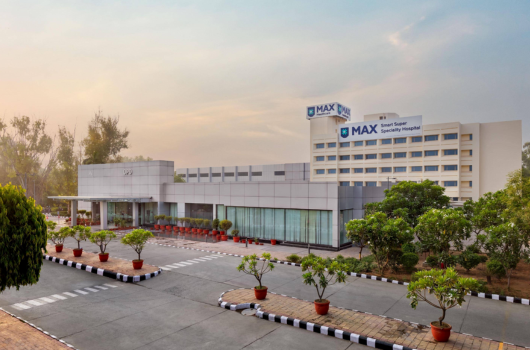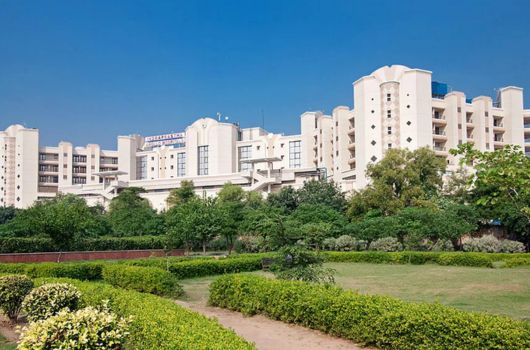
Headache and migraine treatment means using medicine, rest, lifestyle changes, or medical procedures to reduce pain and stop it from coming back.
A headache is a common pain in the head or neck area. It can feel dull, sharp, or throbbing. Most headaches are short-term and improve with rest or simple medicine.
A migraine is a stronger, more painful type of headache. It often causes pain on one side of the head, sensitivity to light or sound, and nausea. Many people ask, “What is migraine?” Migraine is a long-term condition where headaches happen again and again, often with warning signs like flashing lights or feeling sick.
People often use the general term “migraine” when they get strong headaches. But not all headaches are migraines.
Treatment depends on the cause and type of pain. Some people just need pain relief. Others may need tests, stronger medicine, or treatment from a neurologist. If you’re unsure about your condition, Bangla Health Connect can help you speak to top doctors abroad for advice.
People need headache or migraine treatment when the pain becomes regular, intense, or stops them from doing daily tasks. Some people feel weak, tired, or sick during attacks. Others may have headaches every few days without knowing why. Treatment helps reduce the pain, prevent future attacks, and find any serious causes early.
The 7 common causes of headaches and migraines are:
Causes of pain in the scalp can sometimes overlap with headache triggers. While not always linked to migraine or tension-type headaches, scalp pain may be caused by tight hairstyles, nerve irritation, skin infections, or inflammation beneath the surface. In some cases, it adds to overall head discomfort and can make diagnosis more difficult.
What causes excessive headache? This can happen due to prolonged stress, skipped meals, sleep problems, or untreated migraine. In some cases, it may also signal a deeper issue, like high blood pressure or a neurological condition.
What causes pain on both sides of the head? This is often due to tension-type headaches, which create a tight, pressing sensation across the forehead or sides of the head. They are usually triggered by stress, poor posture, or eye strain.
The information provided should not replace medical advice. Headache and scalp pain can have different causes, so it is important to consult a doctor or neurologist for an accurate diagnosis and appropriate treatment.
Headaches and migraines feel different, but people often confuse them. Knowing the signs helps you understand your condition and get the right treatment.
Headaches are usually mild to moderate. Migraines are stronger, last longer, and may come with other symptoms like nausea or sensitivity to light.
Common Headache Symptoms:
Common Migraine Symptoms:
Migraines often run in families. Some people get warning signs before the pain starts. If you feel these symptoms often, you may have migraine and not a regular headache. Consult a doctor for proper diagnosis and treatment.
Doctors may suggest treatment when:
Tests like an MRI or a CT scan may be needed to check for serious problems. Early diagnosis helps avoid long-term effects.
Medicines for headache and migraine are chosen based on the type and severity of pain. For simple cases, doctors may suggest paracetamol or ibuprofen. These reduce mild to moderate pain.
For strong or repeated attacks, doctors may use prescription medicine. Many ask about medicine for severe headache, and common options include:
The right treatment depends on the type of headache, symptoms, and medical history. If you’re unsure, Bangla Health Connect can help you speak with top neurologists at leading hospitals worldwide.
Disclaimer: This information is for general understanding only and is not a substitute for medical advice. Always consult a qualified doctor before starting or changing any medication.
.png)
Through Bangla Health Connect, Bangladeshi patients can access internationally recognised hospitals across India, Thailand, and other leading countries known for excellence in diagnosing and managing chronic headaches and migraines. Many patients choose to travel abroad for treatment due to advanced facilities, experienced specialists, and a proven track record in managing complex neurological pain conditions.
Here’s why Bangladeshi patients choose headache and migraine treatment with Bangla Health Connect in hospitals worldwide:
For Bangladeshi patients, Bangla Health Connect offers a trusted bridge to leading headache and migraine specialists, world-class facilities, and affordable global treatment options, ensuring better comfort, care, and long-term relief.
Bangla Health Connect connects patients with world-class hospitals that specialise in the diagnosis and treatment of headaches and migraines. These centres are renowned for their expert neurologists, headache specialists, and pain management teams, equipped with advanced diagnostic tools and innovative treatment approaches.
Leading hospitals for headache and migraine are:

.jpg)


.png)
.png)

.jpg)









.png)






.jpg)


These hospitals follow global treatment guidelines and provide full support for Bangladeshi patients through Bangla Health Connect.
The average cost of headache and migraine treatment in India typically ranges between $25 to $40 and $120 to $400 in Thailand. The final cost may vary based on multiple factors such as the treatment method, hospital location, and tests. Before viewing the detailed table of treatment-wise costs, it's helpful to understand what influences these expenses most.
Note: India is well known for offering cost-effective advanced treatment. Hospitals combine affordability with strong clinical outcomes, supported by skilled experts and the widespread availability of generic medicines.
Note: Thailand’s hospitals are often promoted as premium destinations for international patients. Their higher costs reflect the use of advanced imported medicines, luxury infrastructure, and all-inclusive patient care packages.
The costs listed are approximate and may vary based on hospital, location, and patient needs. Consult the healthcare provider for accurate and updated information.
The currency conversion rates in the table above are based on data from October 2025.
For more help on cost estimates and personalised guidance, contact Bangla Health Connect.
Headaches and migraines are not fatal, but they can seriously affect daily life if left untreated. With early care and a proper treatment plan, most patients see fewer attacks, reduced pain, and better energy levels.
The success of headache and migraine treatment depends on the type of headache, how early it is diagnosed, and the patient’s response to care:
In headache and migraine treatment, success may include:
Top hospitals take a comprehensive and patient-centred approach to diagnosing and treating headaches and migraines. Their method focuses on accurate identification of causes, modern treatment techniques, and long-term prevention strategies.
This integrated approach combines advanced diagnostics, modern therapies, and holistic care. helps patients achieve lasting relief, improved quality of life, and better control over recurring headaches and migraines.

Dr. Sandeep Nayani, Consultant Neurologist at Apollo Hospitals, Hyderabad, explains:
“Migraine has two types of treatment, medical and non-medical. Non-medical treatment includes avoiding triggers like skipping meals, lack of sleep, chocolates, cheese, and sour foods. If migraine episodes are frequent or severe, we give medications to relieve pain or prevent recurrence. Recently, we have new treatments, monoclonal antibodies, which are taken once a month for six months. These produce better results than oral medications and have fewer side effects like drowsiness or weight gain.”
Bangla Health Connect helps patients from Bangladesh get the right care for headaches and migraines at leading hospitals worldwide. We guide patients at every step from first contact to return home, so they feel supported and informed throughout the journey.
Bangla Health Connect makes this process simple and supportive, from travel arrangements to ongoing medical guidance, ensuring Bangladeshi patients receive high-quality care with peace of mind. With over 60,000 Bangladeshi patients assisted, Bangla Health Connect has built strong trust through clarity, care, and personal support.
Choosing hospitals through Bangla Health Connect ensures quicker care, trusted doctors, and help at every stage of the journey.
Note: Bangla Health Connect does not provide medical advice of any kind.
✅ Share Your Reports - Bangla Health Connect connects you with trusted hospitals worldwide.
✅ Get treatment plans from leading Hospitals worldwide
✅ Choose the one that fits you
✅ Let us handle the rest
Migraine is a type of headache that causes throbbing pain, often on one side of the head. It may come with nausea, vomiting, and sensitivity to light or sound.
Migraine pain is usually stronger and lasts longer than regular headaches. If you feel sick, see flashing lights, or cannot carry out daily tasks, you may have a migraine. Consult a doctor immediately.
Paracetamol or ibuprofen are common medicines for simple headaches. Doctors may prescribe stronger medicines like triptans for migraine.
Disclaimer: This answer is for general awareness only. Always consult a licensed medical professional before taking any medicine.
Common reasons include stress, lack of sleep, dehydration, eye strain, or skipping meals. If the pain keeps coming back, a doctor should evaluate it. A medical professional can guide you.
Yes. You can bring one or two family members. They can apply for a medical attendant visa along with your application.
It depends on your treatment. For tests and medicine planning, a short stay of 5 to 7 days is usually enough.
Yes. We help with everything, doctor appointments, visa documents, flight bookings, and airport pickup. We also offer Bengali-speaking support.
No. Most treatments involve tablets or small lifestyle changes. If needed, scans are painless, and doctors explain each step. You can consult with your doctor to know the full process.
Bring your passport, visa, medical reports, past prescriptions, and a list of medicines you use. We’ll guide you with a full checklist.

